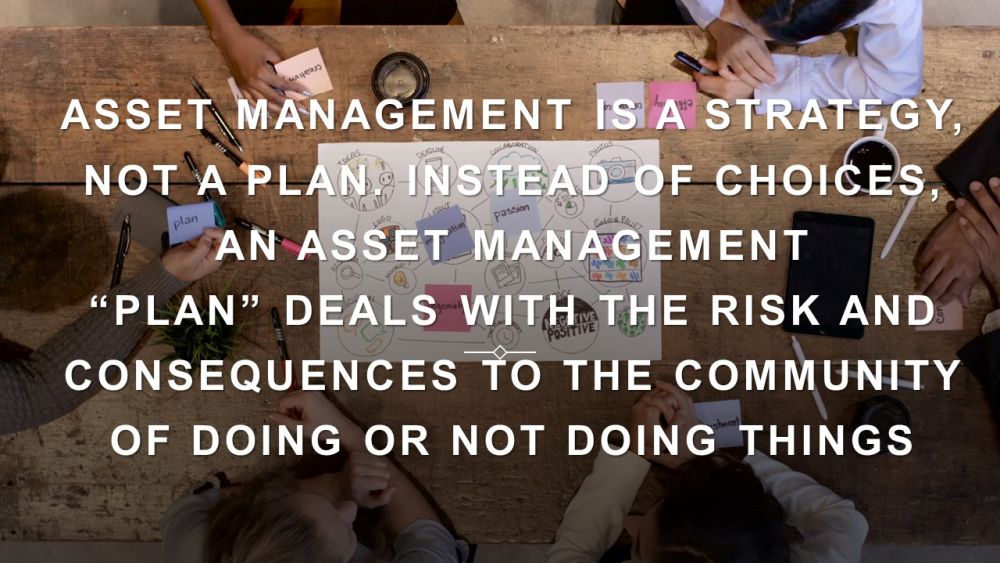LIVING WATER SMART IN BRITISH COLUMBIA: “The Asset Management ‘plan’ addresses life cycle assets related to the service they provide and the basis for replacement or upgrade over time. The risk and consequences of not taking action are substantially higher and more consequential than for Master Plans for water, sewerage and drainage,” stated Wally Wells, Executive Director of Asset Management BC
NOTE TO READER:
Waterbucket eNews celebrates the leadership of individuals and organizations who are guided by the vision for Living Water Smart in British Columbia to build greener communities and adapt to a changing climate; and embrace “design with nature” approaches to reconnect people, land, fish, and water in altered landscapes.
The edition published on April 26, 2022, featured an essay by Wally Wells, Executive Director of Asset Management BC. By focusing on the distinction between a “plan” and a “strategy”, Wally’s storyline goes to the heart of output-oriented versus outcome-oriented approaches.

What’s in a WORD: Do you know what the word “Plan” means in a local government context and wonder whether it is appropriate for infrastructure Asset Management?
Wally Wells is an original thinker. In the Asset Management BC Newsletter, he has a column titled What’s in a WORD. In it, he draws attention to how we use (or perhaps misuse) words. The Winter 2022 issue of the newsletter includes Wally’s article about the word ‘Plan’.
“This column addresses our language of asset management and the use of terms. Do we use them correctly or are we creating a new language and meaning when it is not necessary? Is this part of our communications problem? I think so. Based on dialogue with many, this article reflects the writer’s observations of what we see and hear,” wrote Wally Wells.
“Asset Management, itself, is an awkward term. We have managed assets for decades and understand what that is and what we are doing. Suddenly we took two very simple words, reversed them, and went from managing assets to asset management. The result? We confused everyone.”

What is a Master Plan, really?
“A Plan usually talks about things in the future with choices on both potential services, assets to provide the service, costs and timing premised often on growth assumptions. These are usually called Master Plans and are related to specific services or asset classes. For decades, we have trained our elected officials to understand the decision process and flexibility available for them when presented with a Master Plan.”
“Councils have choices of doing or not doing the recommended activities based on growth and service needs. There is often few consequences and little risk in doing or not doing the suggested activities.”
Life-Cycle Context for Asset Management Over Time
“The same flexibility, risk and consequences of a decision are not the same with the Asset Management Plan. The plan, other than based on ‘futures’, is based on existing services and service levels. So why call it a plan?”
“The Asset Management ‘plan’ addresses life cycle assets related to the service they provide and the basis for capital replacement and/ or upgrade over time, a very different set of circumstances. The risk and consequences of not taking action are substantially higher and more consequential than for Master Plans.”
TO LEARN MORE:
To read the complete story published on April 26th 2022, download a PDF copy of Living Water Smart in British Columbia: Asset management is an awkward term and confuses everyone.


